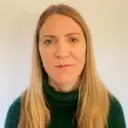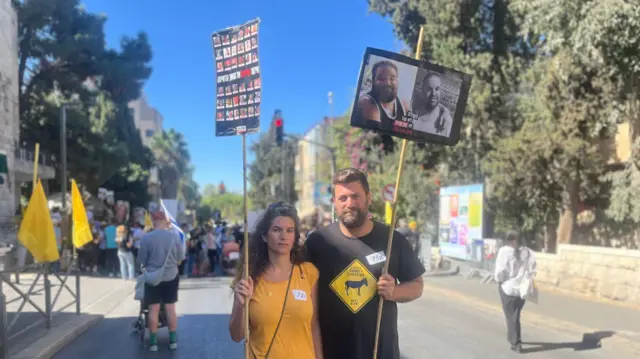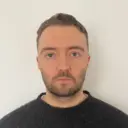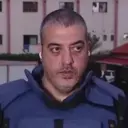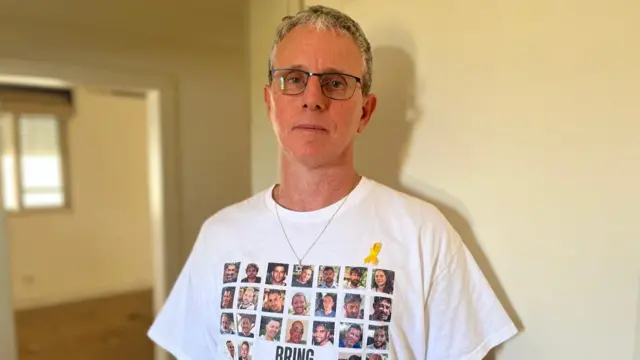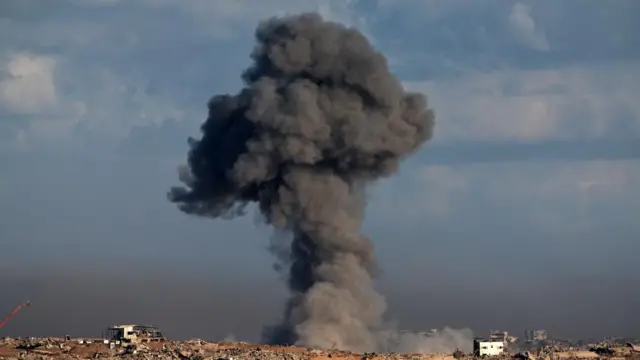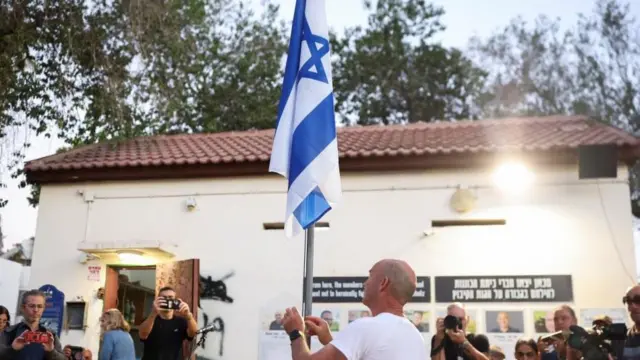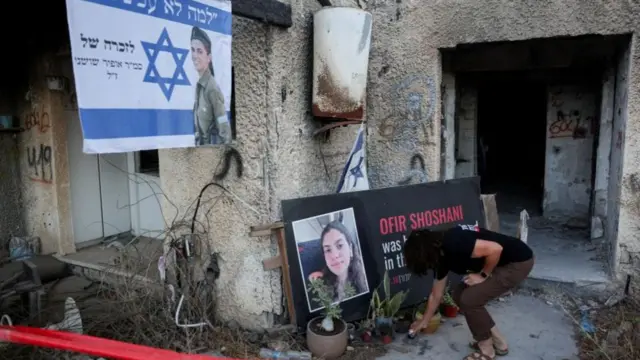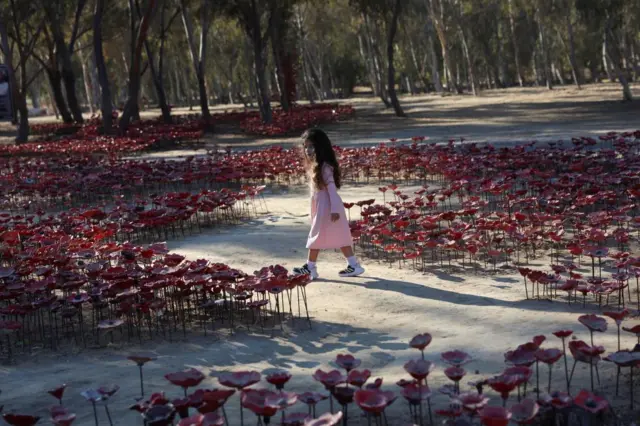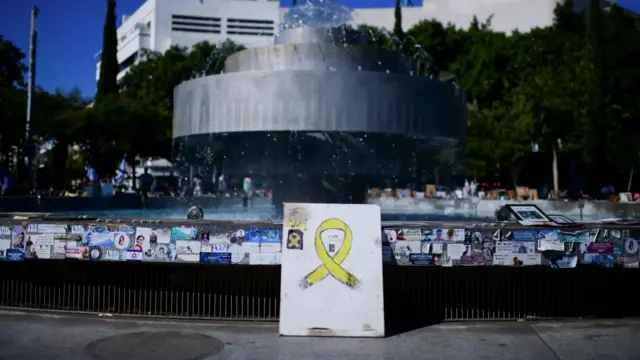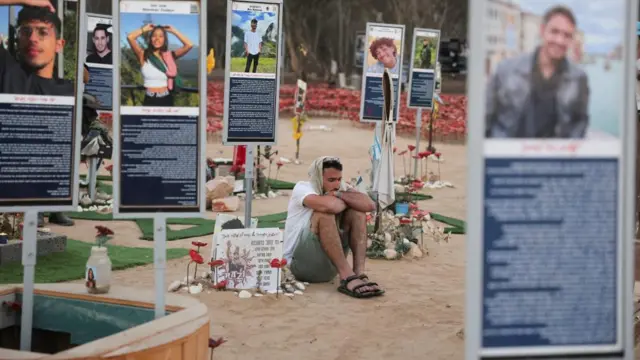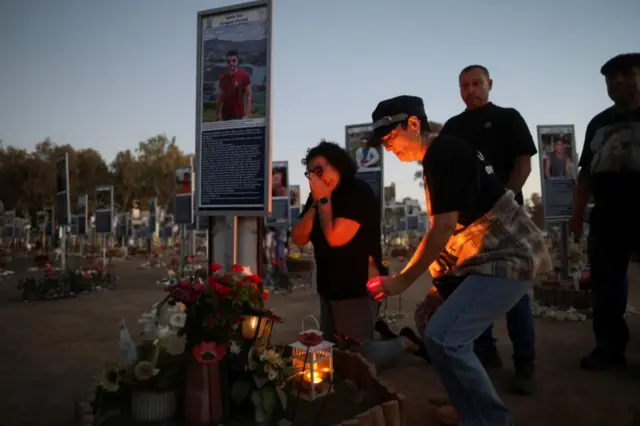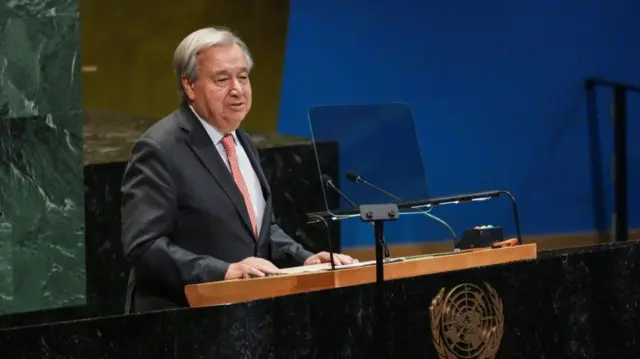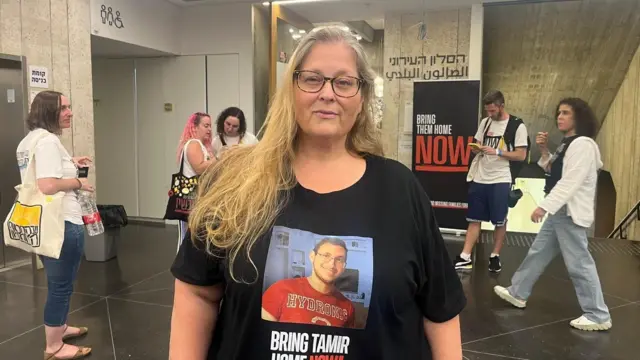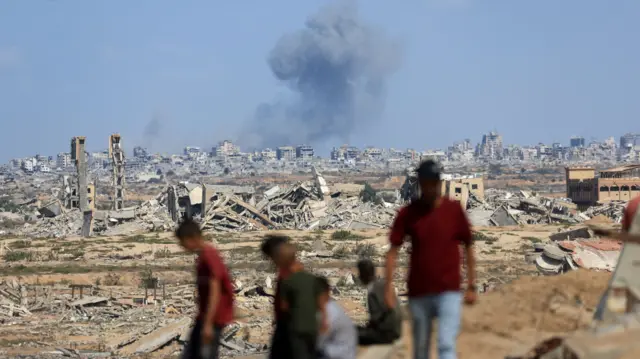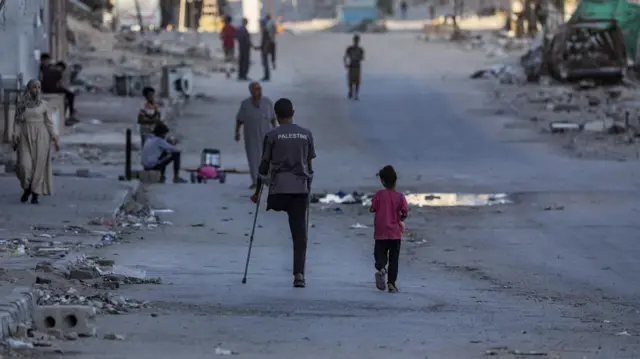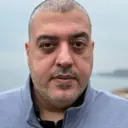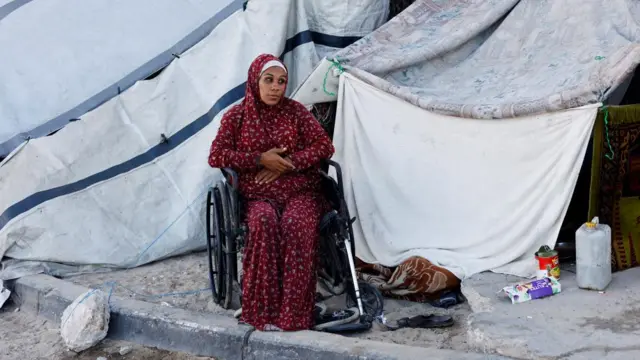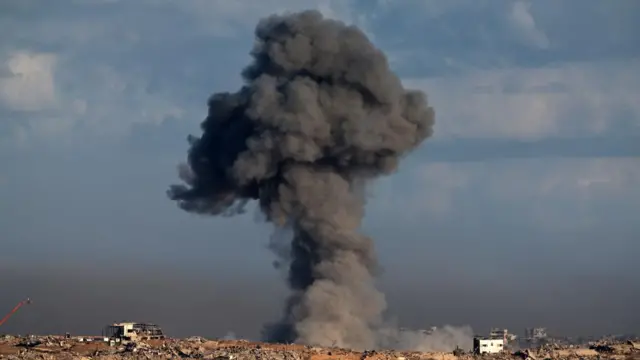Hamas issues statement to mark two years on since its 7 October attackpublished at 10:23 BST 7 October
It has been two years since Hamas's attack on Israel, in which about 1,200 people were killed and 251 others were taken hostage.
In a statement released a short while ago, the armed Palestinian group describes the months since its 7 October attacks as "two years of pain, injustice, oppression and great suffering, of heavy costs".
The group says the deaths of "defenceless civilians" in Gaza have been met with "shameful international silence" and "unprecedented Arab abandonment".
The statement also pays tribute to the Hamas members who have died - including Hamas leader Yahya Sinwar, who was killed by Israeli troops in October 2024.
- A reminder: The US, UK, Israel and many other nations have designated Hamas as a terrorist organisation.
